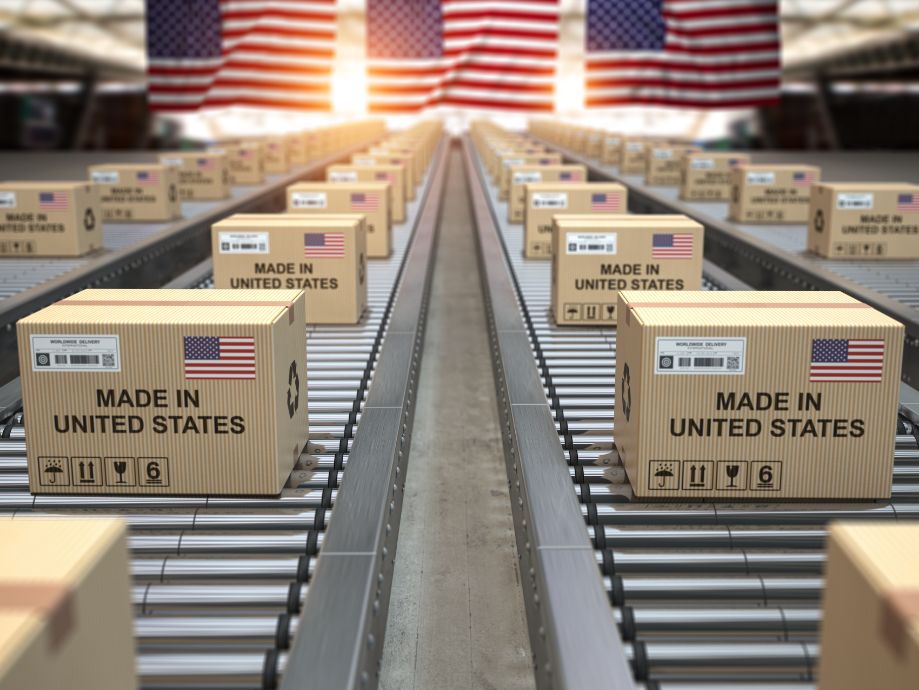What is the Berry Amendment?
GSA Schedule | 5 Min Read
As a GSA Schedule contractor, you are used to abiding by several regulations and requirements. Not only is it important you are aware of the requirements to maintain your GSA Schedule, but you should also familiarize yourself with certain government contracting legislation that affects your government customers, like the Berry Amendment.
Under the Berry Amendment, the Department of Defense (DoD) can’t use appropriated funds to procure certain goods that aren’t made or grown in the U.S., so it could substantially impact your business. What products fall under the Berry Amendment and how does it apply to GSA contractors? Here’s what you need to know.
What is the Berry Amendment?
To put it simply, the Berry Amendment promotes the procurement of certain U.S. goods. This amendment restricts the DoD from using funds for purchasing products such as food, clothing, fabrics, and other made-up textiles that are not grown, reprocessed, reused, or produced in the U.S.
The Berry Amendment was originally part of the DoD Appropriations Act, which was passed in 1941. Congress created the act to protect the domestic industry base in the time of war, and it continued to be included in defense acts until it was made permanent in 1994.
Since its creation, the Berry Amendment has been a critical piece of legislation for the security and growth of the textile and clothing production base in the United States.
Covered Items Under the Berry Amendment
The Department of Defense (DoD) cannot use appropriated funds to purchase any of the following items unless they have been grown, reprocessed, reused, or produced in the U.S.:
- Clothing and material components such as headwear, underwear, footwear, hosiery, hand-wear, belts, badges, and insignia. More examples can be found on PGI 225.70 Authorization Acts;
- Tents and structural components of tents;
- Cotton and other natural fiber products;
- Woven silk or woven silk blends;
- Spun silk yarn for cartridge cloth;
- Synthetic fabric or coated synthetic fabric;
- Canvas products;
- Wool (in the form of fiber or yarn, or contained in fabrics and materials);
- Any item of individual equipment manufactured from or containing such fibers, yarns, fabrics, or materials that are manufactured in the U.S.
Although there is a long list above, the DoD suggests that the Berry Amendment is evaluated on a case-by-case basis. There are also exceptions, which we will outline below.
How Does the Berry Amendment Apply to GSA Contractors?
The Berry Amendment applies to both prime contractors and subcontractors. If you are currently a DoD supplier or you plan to be in the future, you need to ensure your products are compliant with the Berry Amendment.
This law applies to all purchases over the Simplified Acquisition Threshold (SAT), which is currently set at $250,000. This can include foreign military sale transactions and any time a DoD buying activity is purchasing on behalf of another agency.
Keep in mind, this law applies to both end items and components. Acquisition Offers are responsible for investigating if a covered item is present in a compound of the items being purchased. This is a requirement for all domestic origin flow downs, so suppliers and resellers are affected as well. You can find additional information on how the Berry Amendment applies to you and your GSA Schedule contract in the DFARS.
Berry Amendment Exceptions
The Berry Amendment has a few exceptions. Generally, if the DoD is purchasing textiles or clothing in the United States, all processing and/or manufacturing must be done in the United States and all of the material must be domestically sourced.
However, there are some exceptions. If any exceptions apply to the order, the DoD suggests that the Contracting Officer makes sure the appropriate documentation is in the contract file, and that the normally required DFARS clauses are omitted from the solicitation and contract.
Here are the Berry Amendment exceptions:
- If the prime contract is at or below the SAT, the Berry Amendment does not apply. It’s important to note that the SAT is determined at the prime contract level, and not at the subcontract level.
- A waiver or a Domestic Non-Availability Determination (DNAD) may be granted if the Secretaries of the Army, Navy or Air Force, the Under Secretary of Defense for Acquisition, Technology and Logistics, or the Director of the Defense Logistics Agency determines that a sufficient quantity and satisfactory quality of items grown, reprocessed, reused, or produced in the United States cannot be acquired at U.S. market prices.
- Items listed in Federal Acquisition Regulation (FAR) 25.104(a) are exempt from the Berry Amendment. These are items determined to be non-available under provisions of the Buy American Act. This determination does not necessarily mean that there is no domestic source for the listed items, but that domestic sources can only meet 50 percent or less of total U.S. government and non-government demand.
You can find additional information about Berry Amendment exceptions in the DFARS.
How Does the Buy American Act Impact the Berry Amendment?
Earlier this year, Biden-Harris Administration issued the “Made in America” Executive Order, which directly supports the Buy American Act. Originally created in 1933, the Buy American Act requires federal government agencies to purchase domestic materials and products. It was issued as a way for the U.S. government to proactively invest in American industry.
The new “Made in America” Executive Order establishes and increases the domestic content threshold, which specifies the amount of a product that needs to be made within the U.S. to qualify under the Buy American Act. This Executive Order also updates the protocol for how an Acquisition Officer decides if a product was sufficiently made in America.
The Berry Amendment has created a way for the Department of Defense to focus on purchasing American made products to support domestic American business. So, it complements the “Made in America” Executive Order and Buy American Act.
All of these pieces of legislation increase and support contracting opportunities for U.S. businesses. While it can be a lot to keep up with the series of regulations, the federal government aims to invest in the American industry, and as a result, they impact GSA contractors.
Complying with the Berry Amendment
Compliance with the Berry Amendment is important for all GSA contractors. If you want to expand your customer-base and sell to the Department of Defense, you should ensure your GSA Schedule contract has products that are compliant with the Berry Amendment.
GSA Schedule compliance is a huge part of being a successful contractor. To learn more about other GSA Schedule requirements, read our GSA Schedule maintenance checklist.
If you have any questions about the Berry Amendment, or if you need help maintaining your GSA Schedule contract, you can reach out to one of our consultants.






